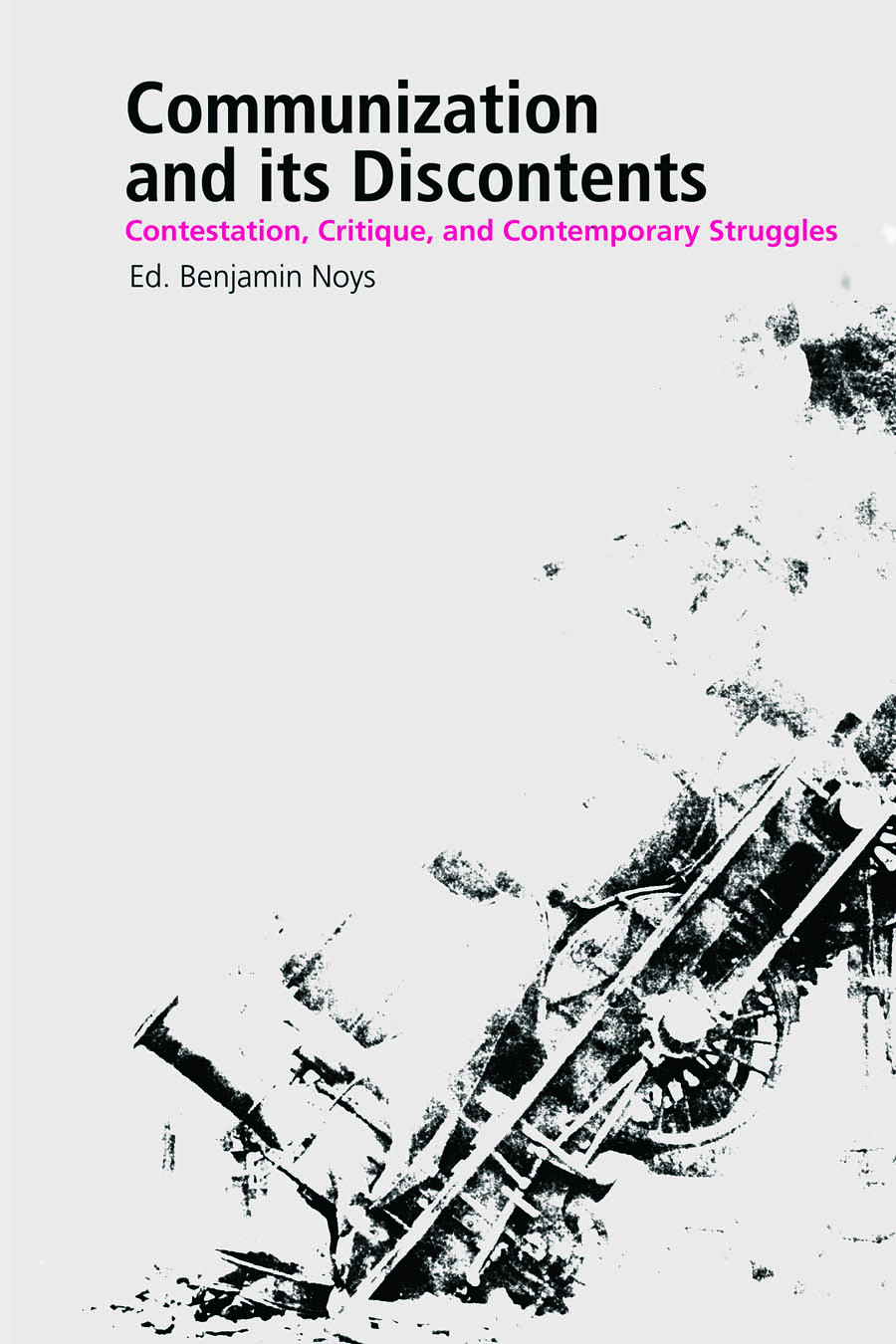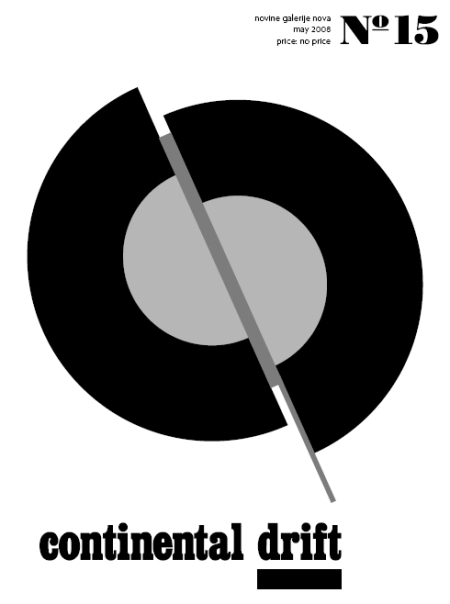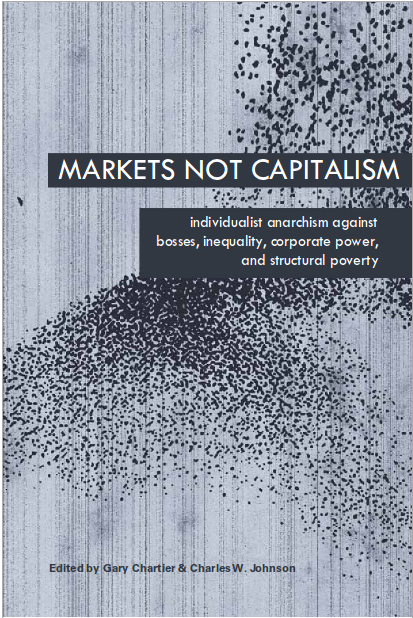Benjamin Noys (ed.): Communization and its Discontents: Contestation, Critique, and Contemporary Struggles (2011)
Filed under book | Tags: · activism, capitalism, commons, resistance

“Can we find alternatives to the failed radical projects of the twentieth century? What are the possible forms of struggle today? How do we fight back against the misery of our crisis-ridden present?
‘Communization’ is the spectre of the immediate struggle to abolish capitalism and the state, which haunts Europe, Northern California and wherever the real abstractions of value that shape our lives are contested. Evolving on the terrain of capitalism new practices of the ‘human strike’, autonomous communes, occupation and insurrection have attacked the alienations of our times. These signs of resistance are scattered and have yet to coalesce, and their future is deliberately precarious and insecure.
Bringing together voices from inside and outside of these currents Communization and Its Discontents treats communization as a problem to be explored rather than a solution. Taking in the new theorizations of communization proposed by Tiqqun and The Invisible Committee, Théorie Communiste, post-autonomists, and others, it offers critical reflections on the possibilities and the limits of these contemporary forms, strategies, and tactics of struggle.”
Contributors: Jasper Bernes, John Cunningham, Endnotes, Alexander R. Galloway, Maya Andrea Gonzalez, Anthony Iles, Leon de Mattis, Nicole Pepperell, Théorie Communiste, Alberto Toscano, Marina Vishmidt, and Evan Calder Williams.
Publisher Minor Compositions, 30 November 2011
ISBN 9781570272318
280 pages
PDF (updated on 2012-7-25)
Scribd
Continental Drift Zagreb (2008)
Filed under newspaper | Tags: · activism, art, autonomy, capitalism, cartography, creative industries, economy, geopolitics, neoliberalism, politics, power, war

“It’s always useful to turn dreams into realities, because you get to measure the differences and even let yourselves be guided by the intrinsic gaps between the two. Continental Drift was the dream of a geopolitical analysis carried out by a diverse group (theorists, artists, activists) and mapped onto everyday social and political life as an expanding set of explanations and expressive potentials. The dream was made in USA, and even on Wall Street in New York City, but it was realized by a group of immigrants, returning exiles and general misfits, all marked by the basic heresy of left positions in an age of liberal capitalist empire. By transplanting this inquiry to Zagreb, Croatia – the home of the What, How & For Whom? collective – it seems we are bringing a new dream into focus. The desire is that of widening the intrepretative circle, crossing divides of language and historical experience, trying to build capacities of understanding and confrontation between the immigrants, exiles and misfits of the big continental blocs and especially their edges – the cracks that open up wherever anyone can no longer stand what is taken and imposed as the norm. Empire as we see it is always falling apart, for better and usually for worse, under the pressure of massive processes which we are unlikely to even see coming, let alone grasp or have the agency to change in any way. Yet as the urgency and also the absurdity of the present predicament begins to rise in intensity, at least all around there are people trying similar experiments.” (Brian Holmes)
Novine Galerije Nova, No 15, May 2008
Publishers: What, How and for Whom/WHW, Zagreb; AGM, Zagreb
Editors: Continental Drift Zagreb team (Ayreen Anastas, Rene Gabri, Brian Holmes, Claire Pentecost, What, How and for Whom/WHW, Ivet Ćurlin, Ana Dević, Nataša Ilić, Sabina Sabolović)
Design: Dejan Kršić
36 pages
Gary Chartier, Charles W. Johnson (eds.): Markets Not Capitalism: Individualist Anarchism Against Bosses, Inequality, Corporate Power, and Structural Poverty (2011)
Filed under book | Tags: · activism, anarchism, capitalism, communism, economics, economy, market, neoliberalism, protest, revolution, socialism

Individualist anarchists believe in mutual exchange, not economic privilege. They believe in freed markets, not capitalism. They defend a distinctive response to the challenges of ending global capitalism and achieving social justice: eliminate the political privileges that prop up capitalists.
Massive concentrations of wealth, rigid economic hierarchies, and unsustainable modes of production are not the results of the market form, but of markets deformed and rigged by a network of state-secured controls and privileges to the business class. Markets Not Capitalism explores the gap between radically freed markets and the capitalist-controlled markets that prevail today. It explains how liberating market exchange from state capitalist privilege can abolish structural poverty, help working people take control over the conditions of their labor, and redistribute wealth and social power.
Featuring discussions of socialism, capitalism, markets, ownership, labor struggle, grassroots privatization, intellectual property, health care, racism, sexism, and environmental issues, this unique collection brings together classic essays by leading figures in the anarchist tradition, including Proudhon and Voltairine de Cleyre, and such contemporary innovators as Kevin Carson and Roderick Long. It introduces an eye-opening approach to radical social thought, rooted equally in libertarian socialism and market anarchism.
Publisher Minor Compositions, an imprint of Autonomedia, November 2011
ISBN 978-1-57027-242-4
440 pages
PDF (added on 2014-12-22)
Scribd

